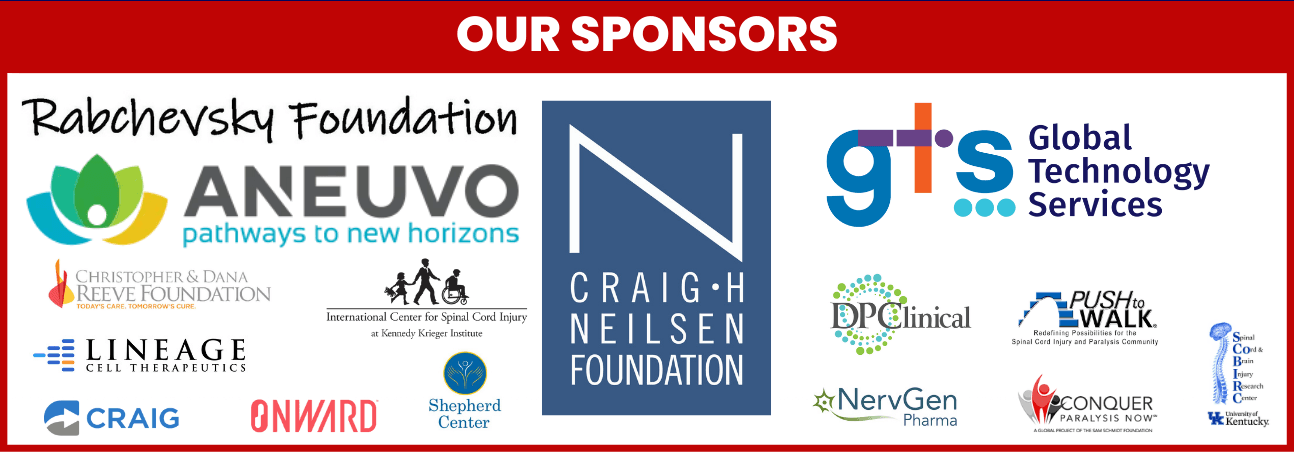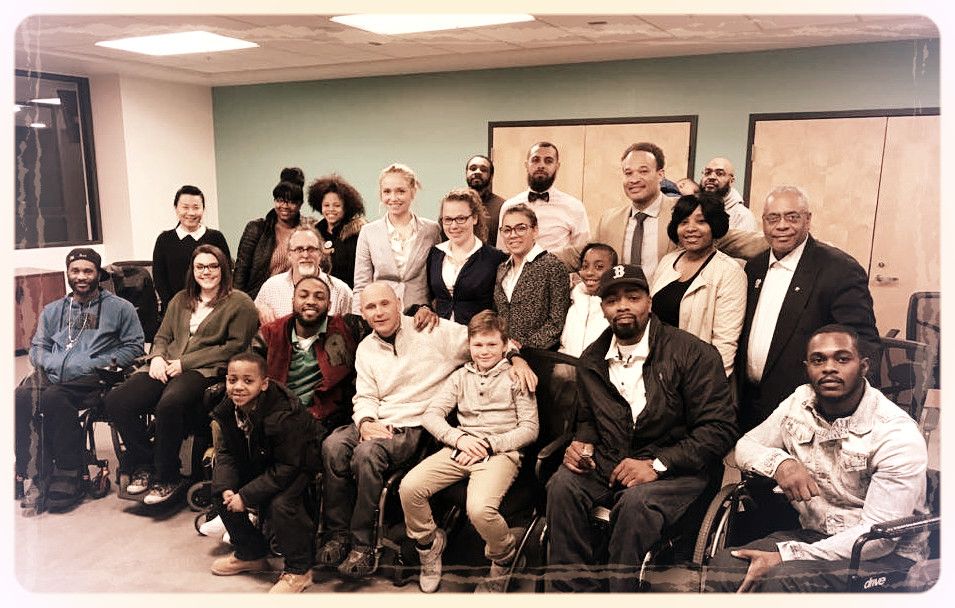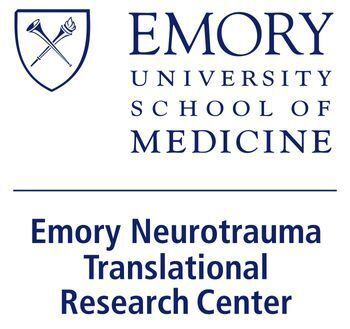June 20, 2024
The Agenda - U2FP's Symposium
Matthew Rodreick
U2FP’s Annual Symposium is approaching fast, happening in Atlanta, Georgia on September 27-28 (register here). We hope to see many of you there, and are excited to be hosting this event in partnership with our title sponsor, the Emory Neurotrauma Translational Research Center (ENTiRe). As I mentioned last month, “Point of View” is the theme we are using to guide our agenda this year. We want to explore how our various points of view inform what we are doing….and maybe also what we are not doing.
I have written before about the importance of proximity as a grounding principle for our work, as well as its importance for understanding how we perceive our collective roles in the effort to deliver curative therapies for SCI. Why the focus on proximity? Because we care most about what we’re closest to and we see best what is closest to us.
We will host eight sessions over the course of two days. Below you’ll find a summary of each session we’ve planned and the presenters we’ve confirmed so far. We will be publishing the full and most up to date version of the agenda on our website by the end of the month, so keep an eye out for that.
Session One will be an effort to establish some context: Where are we? Where have we been? Can we get where we want to go? This will be kicked off by our Keynote Speaker, Leon Ford, whose presentation is entitled ‘Wherever We Go We Must Go Together’.
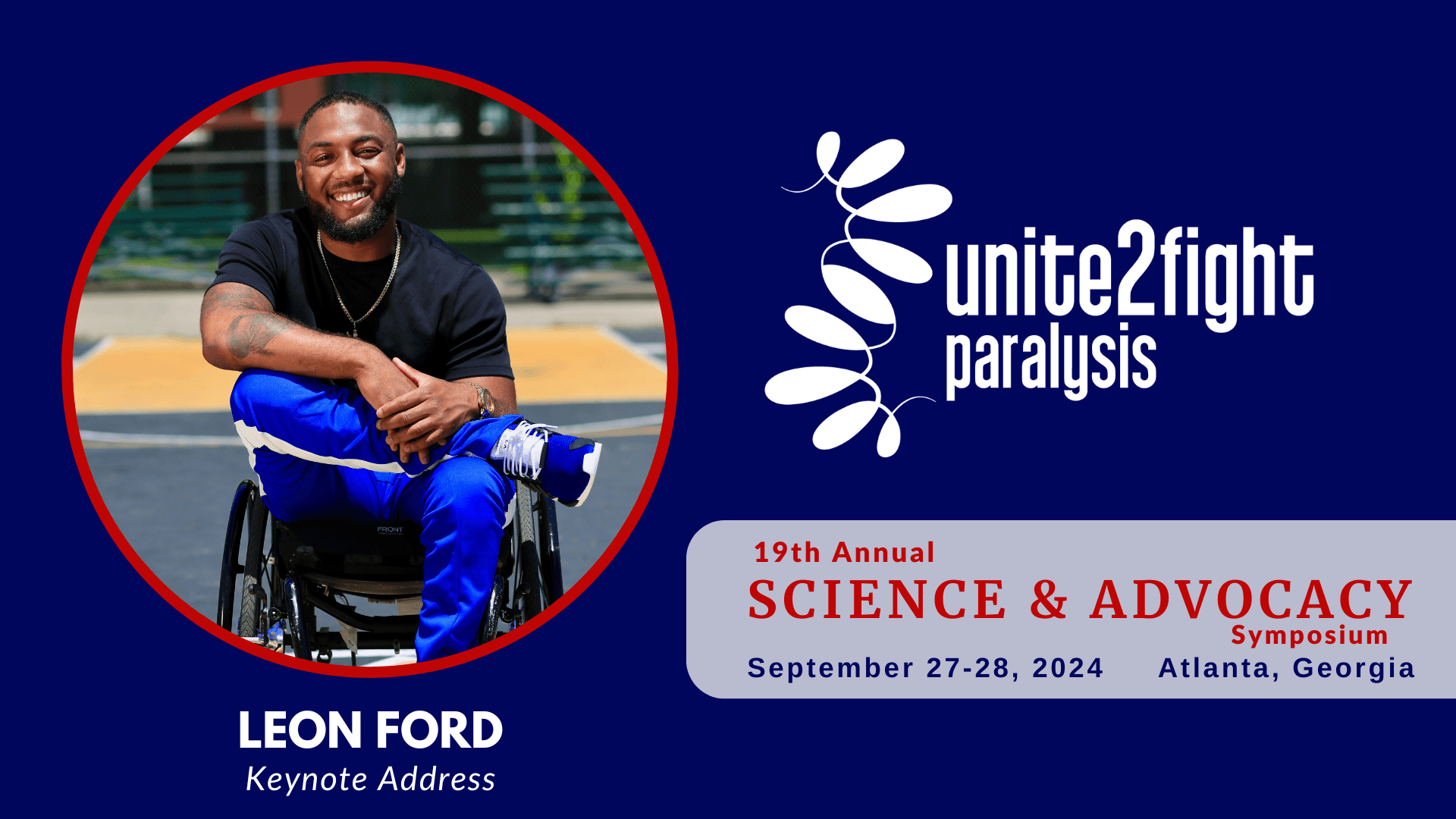
Following Ford, will be Jen Dulin (SCI researcher at Texas A&M) presenting on a financial retrospective study we proposed to better understand what is being funded and what has been delivered by that funding. This will be followed by David Baker (Dean of Research at Marquette University) asking if we have the translational system we need to bring discoveries to the clinic.
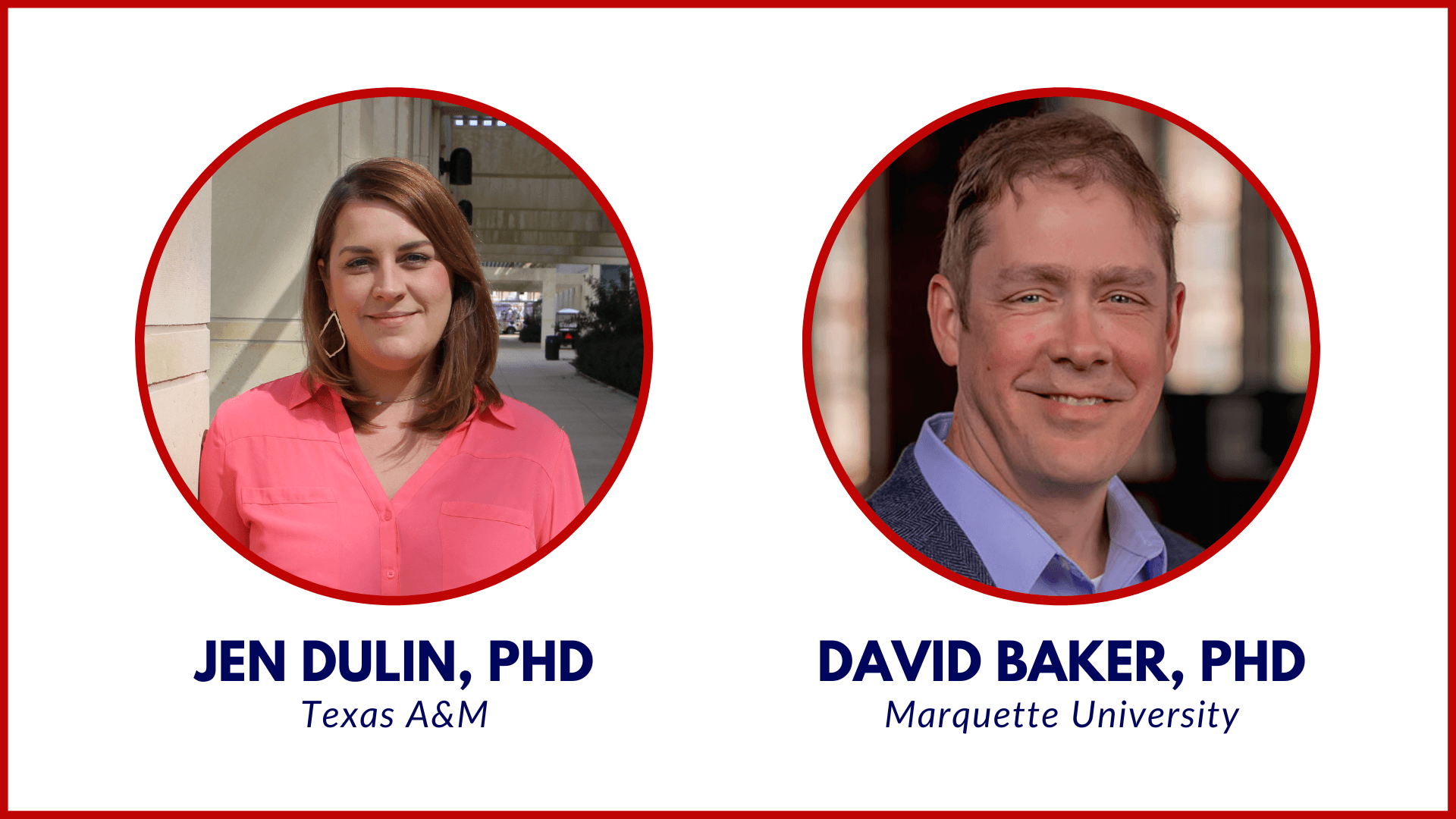
Session Two will be a challenging one. We will discuss SCI as a whole body problem, what we could call our 3 Body Problem: Movement, Sensation and Autonomic Function. Is there a tension between addressing these whole body problems and their relation to one another versus the incremental strategies many in the SCI community have stated as desired priorities; e.g., bladder, bowel, sexual, hand function and pain.
David Magnuson (University of Louisville) will set the stage by addressing these questions directly. Ann Van De Winckel (University of Minnesota) will present on her efforts to harness and retrain the body’s capacity for relearning and rewiring to gain multiple functions. Gordon Mitchell (University of Florida) will discuss his work to induce neuroplasticity to restore breathing function and its broader implications on body systems after SCI.
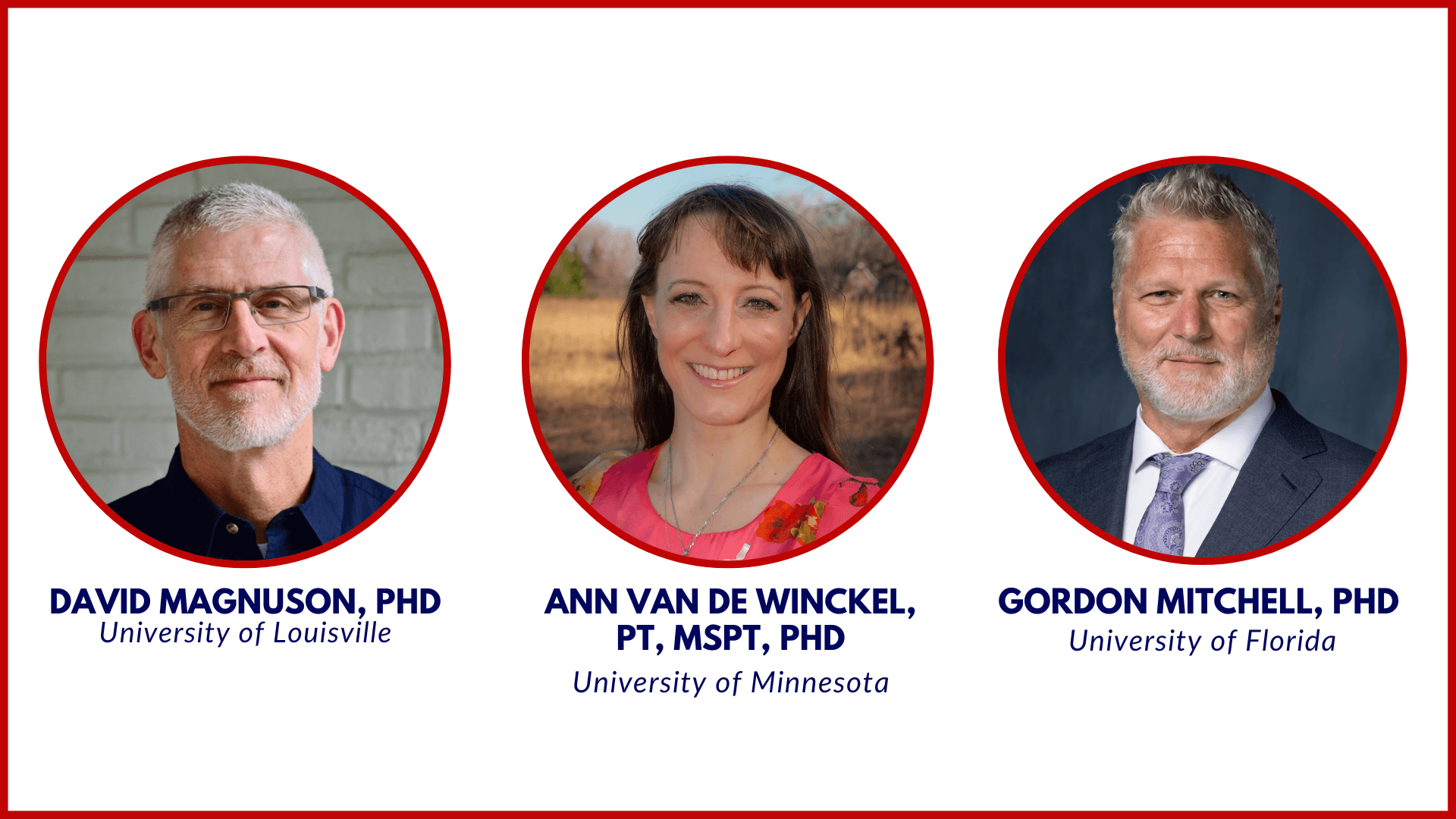
Session Three will revisit spinal cord stimulation as we have been doing the past several years. Dimitry Sayenko (Houston Methodist) will discuss his work with transcutaneous (non-invasive) stimulation in an effort to restore sensorimotor function after SCI. Elizabeth Bottorf (University of Minnesota) will discuss the augment to the EStand trial focused on measuring sexual function outcomes (arousal and orgasm) in SCI participants with epidural stimulation. And Evan Sandler, a PhD student from Edee Field-Fote’s lab at the Shepherd Center will discuss his work related to transcutaneous spinal stimulation and novel outcome measures related to spasticity, voluntary movement, and reflex activation.
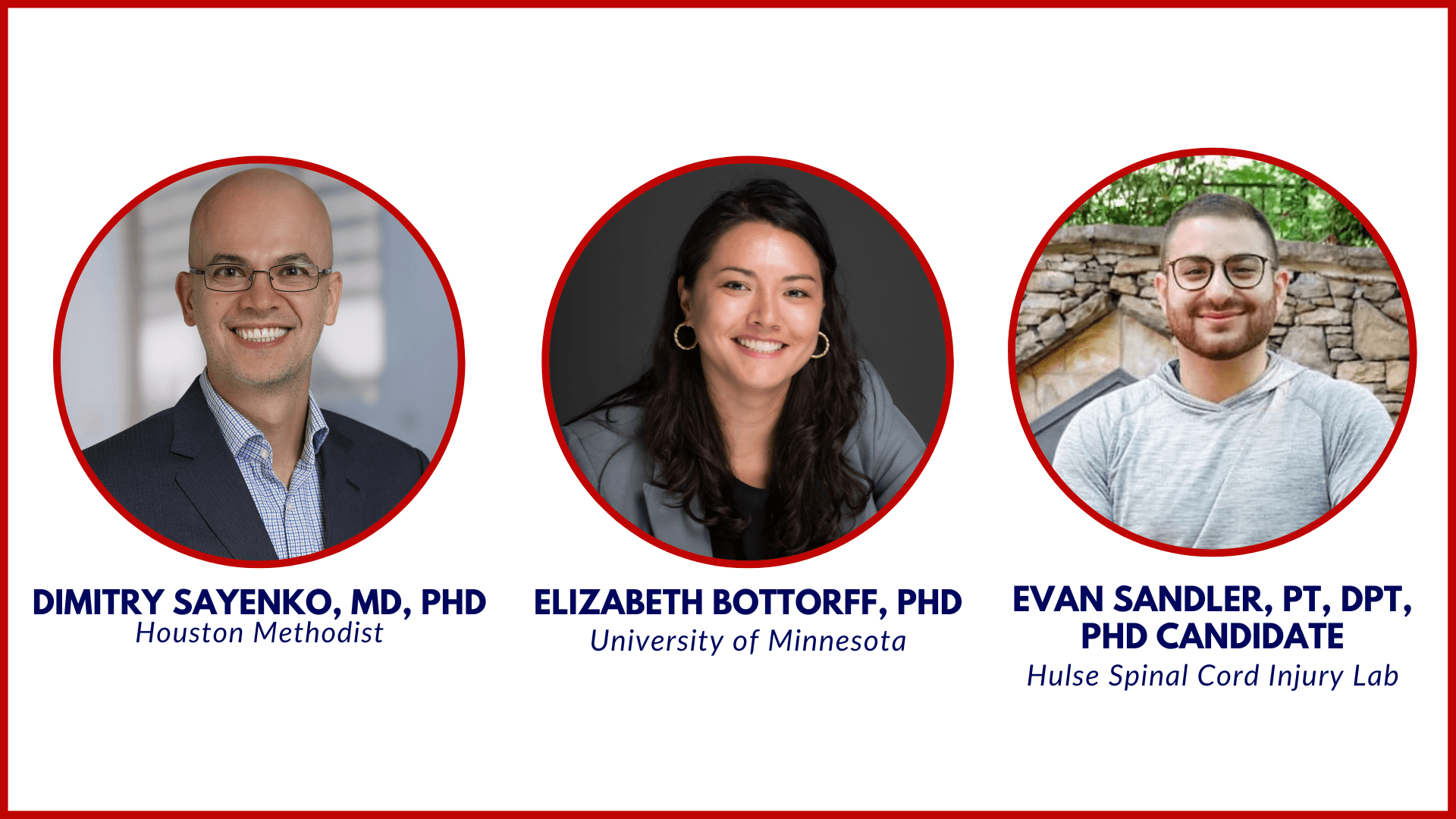
Session Four will be a discussion with ONWARD CEO, Dave Marver. We will discuss ONWARD’s efforts to gain regulatory approval for their ARC-EX transcutaneous device for chronic SCI. And of course, further discuss their next steps for both dissemination of the ARC-EX as well as their other device strategies in the pipeline.
The day will end with a conversation with Freaque and Reveca Torres, both artists with SCI. We will discuss their artistic endeavors and how point of view informs and is expressed in their work.
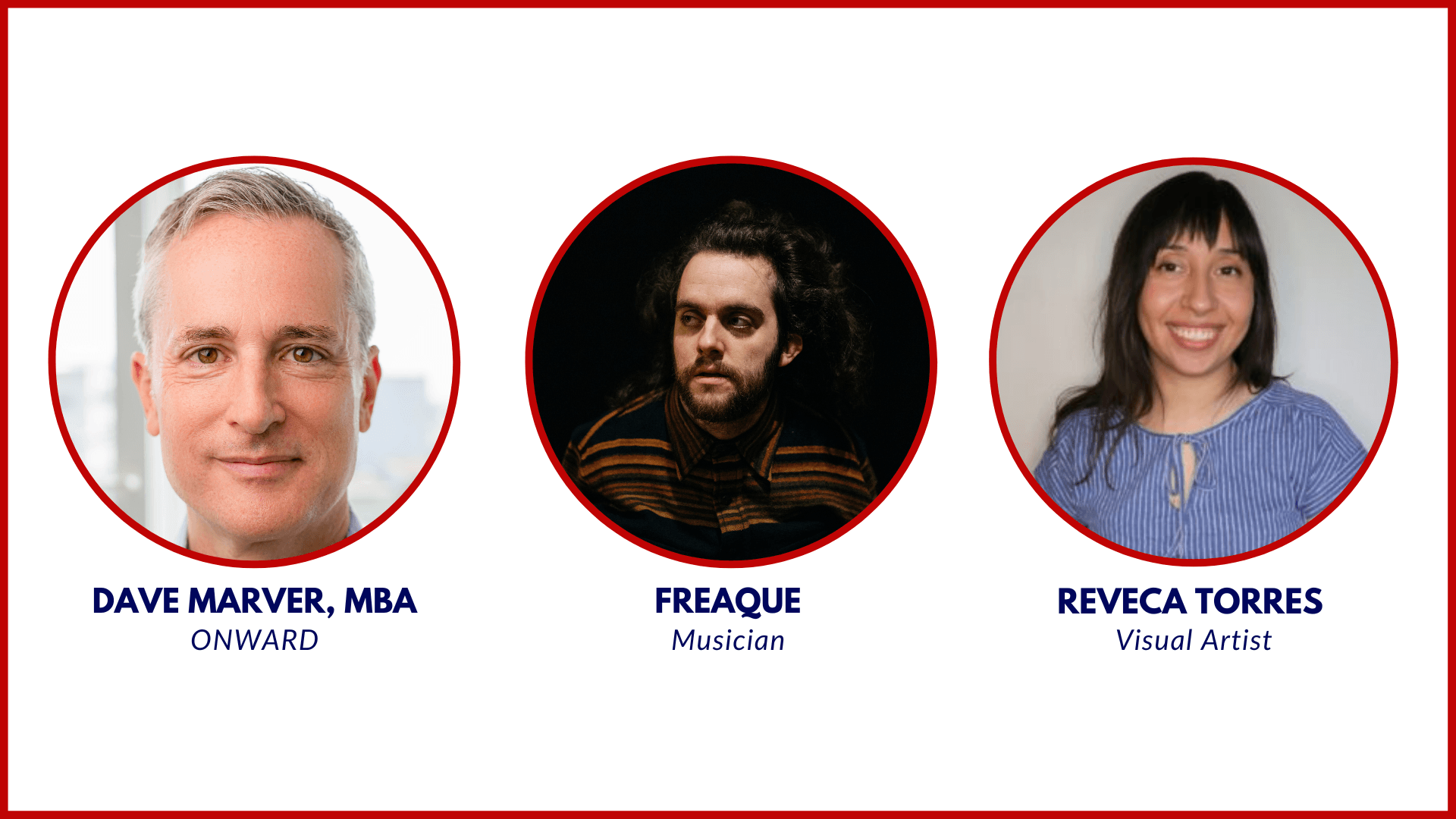
Session Five will kick off the second day with a discussion of the future of combination therapies. Many in the SCI field are convinced that a combination of treatment strategies will be necessary to afford the maximal recovery benefit especially in chronic SCI. Candace Floyd (Emory University) will report on the NerveGen/Epidural Stimulation combination in chronic pigs, which was the brain-child of U2FP, and is funded by a coalition of SCI orgs.
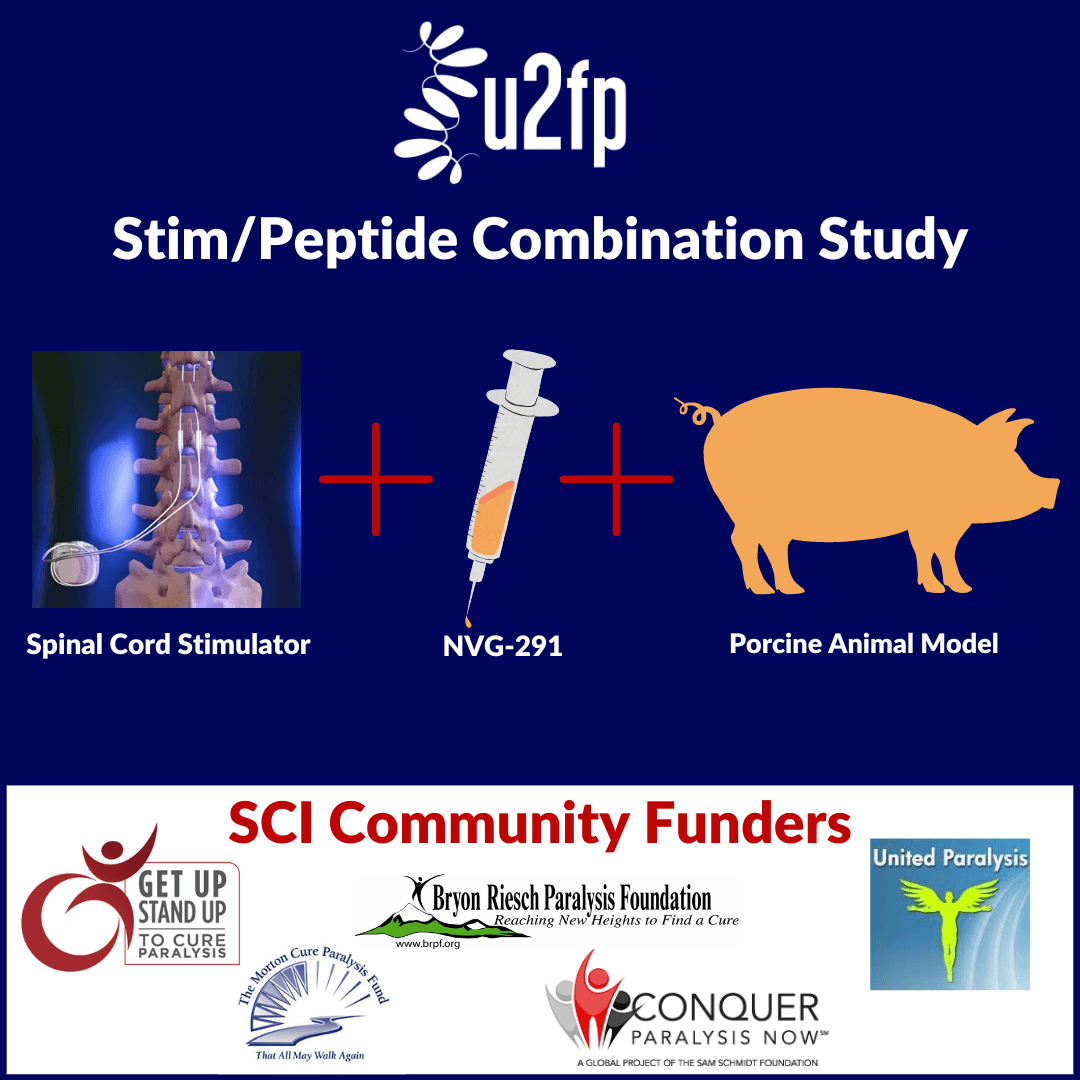
Mark Anderson (The Wyss Center) will discuss his influential paper with Jordan Squair and many others to reengineer the spinal cord combining biologic, genetic and chemical engineering to regenerate growth after SCI. Kajana Satkunendrarajah (Medical College of Wisconsin) will present on her recent work to restore breathing function in high level cervical injury using a combination to activate receptors to induce regeneration amongst a sub-population of interneurons associated with respiratory function.
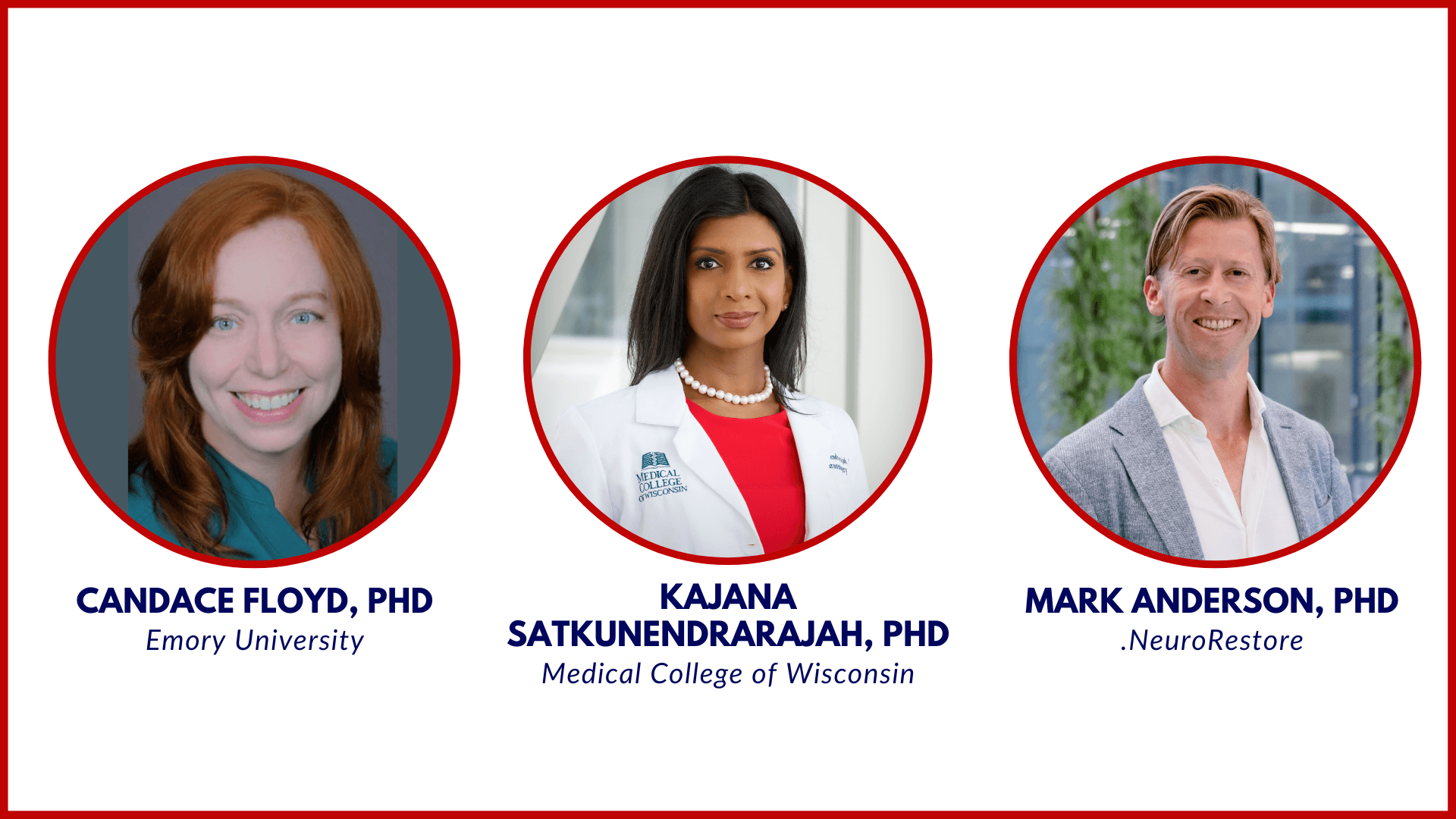
Session Six will be devoted to the challenges and promise of commercializing regenerative treatments for SCI. NervGen’s Chief Science Officer, Daniel Mikol will provide an update on their Phase 2 trial in chronic SCI and discuss his plans for future trials. Jessica Kwok (University of Leeds) co-founder of Neurosolv will provide an update on their plans for a Phase 1 trial using an already approved drug in Europe (for another condition) to repurpose for SCI. Brian Culley, CEO of Lineage Cell Therapeutics will discuss the company’s ongoing trials and plans to launch a chronic injury cohort with their oligodendrocyte precursor cells (OPC1).
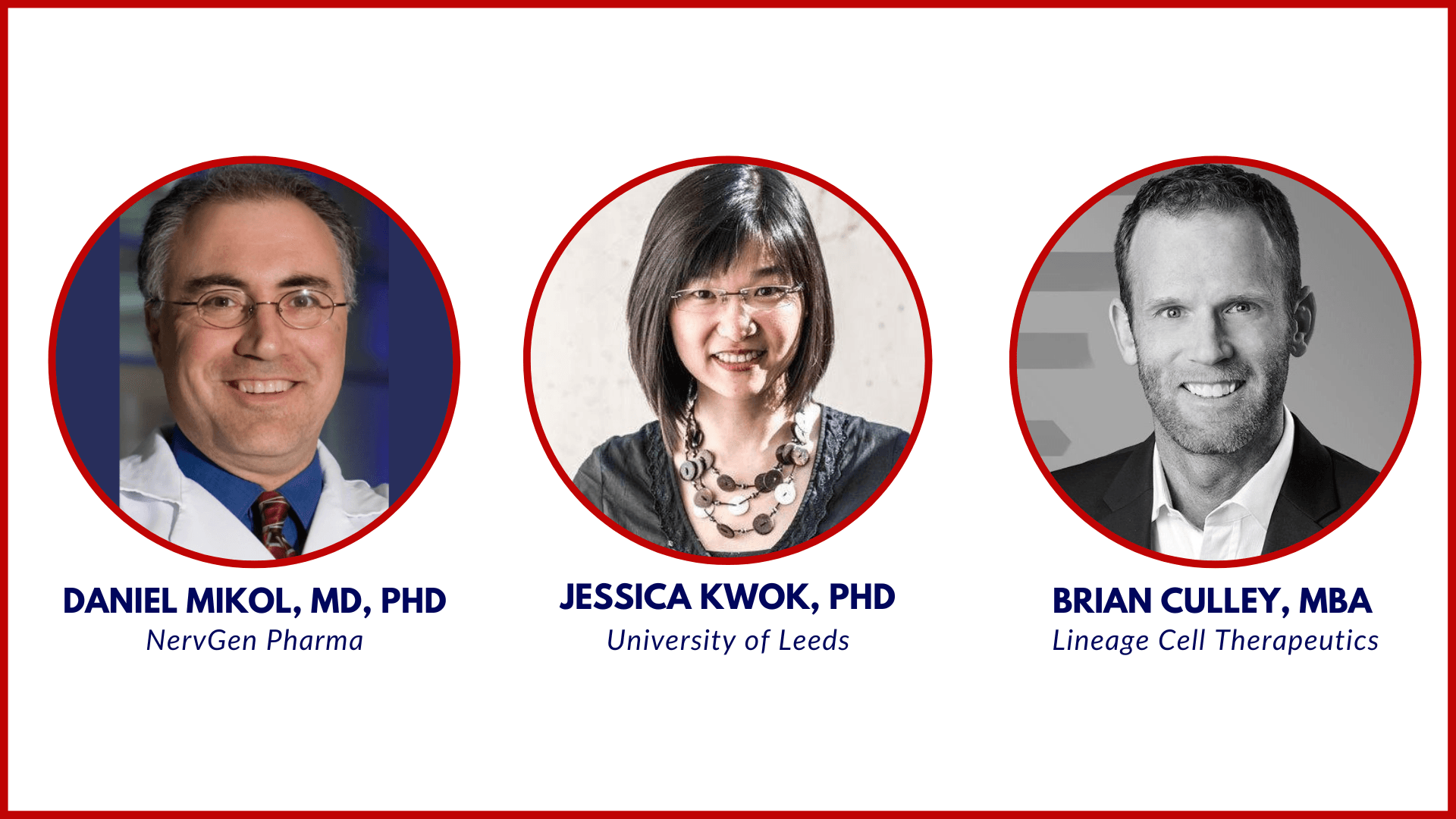
Session Seven will be our second hosting of a poster session. We have invited trainees to apply for a poster presentation (here’s the link to apply). Last year’s poster session in Minneapolis was a great success. The opportunity for graduate students and trainees to present and specifically hear from people with lived experience is critical to bridging the gaps between investigation and the unmet human need of those living with an SCI. Young scientists learn the skills necessary to communicate complex science to laypeople and people with lived experience gain a better understanding of the challenges inherent in scientific discovery.
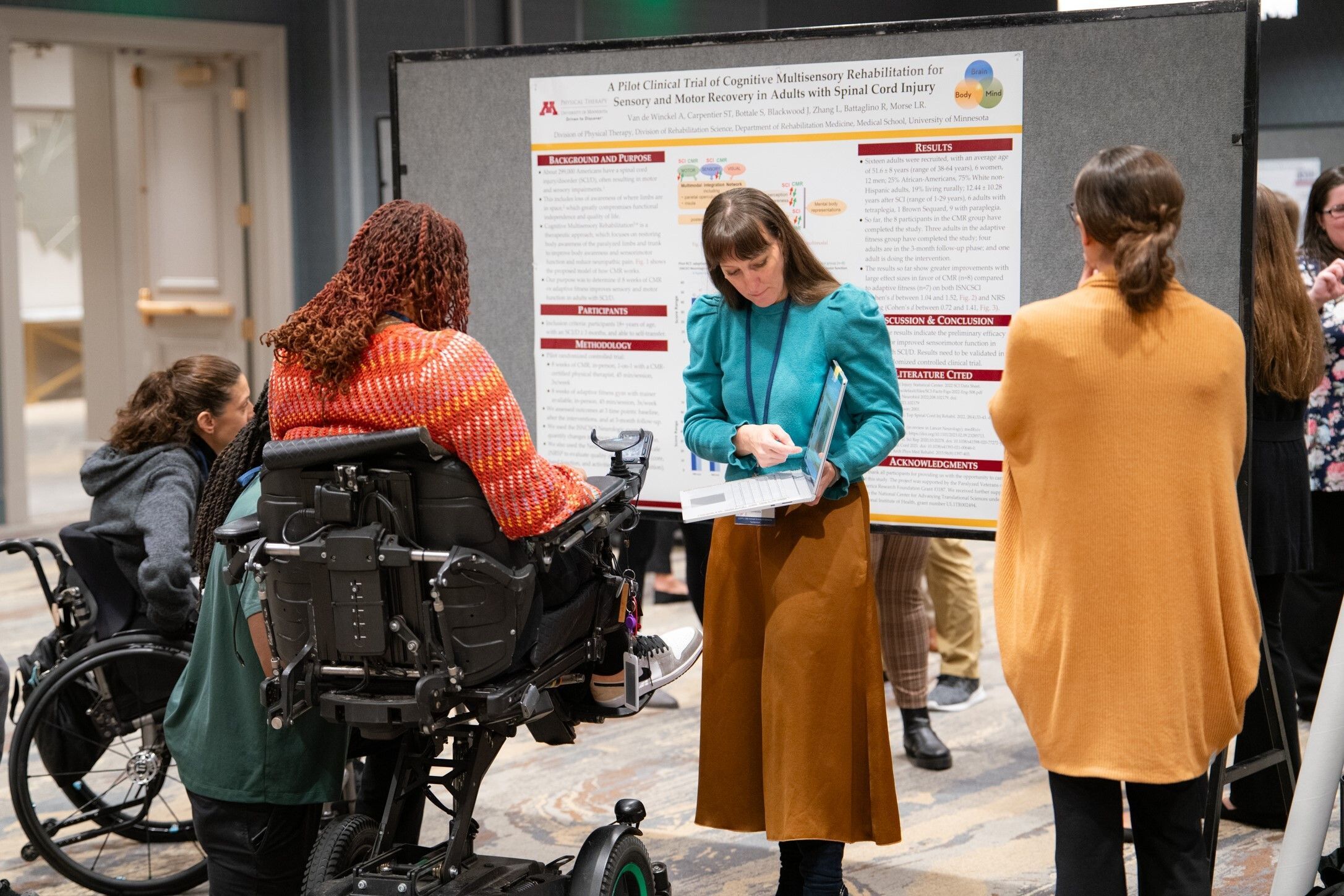
Session Eight (subject to change) will be a continuation of our efforts to facilitate in-person strategic conversations around critical areas like: What is translation? What is really happening with Spinal Cord Stimulation and what can people with SCI expect? Advocacy: How do we break through the noise to gain supporters for our cause? This will be accompanied by how to get involved with our Cure Advocacy Network (almost $40 million to SCI research as of this year) as well as the future of this advocacy movement.
All of these sessions will be framed with questions that are echoes of the proximity frame described above: How do you see/understand/engage with this from your point of view? And how and where do our points of view diverge and converge?
U2FP is committed to accelerating curative therapies for those who suffer from chronic spinal cord injury. Come and join us in this effort - register here - so we can hear your point of view and you can learn from being in proximity to new people and new perspectives.
PS - Consider joining our fantastic lineup of sponsors, listed below. Special thanks to Emory Neurotrauma Translational Research Center (ENTiRe), this year's Title Sponsor!
2024 Science & Advocacy Symposium Sponsors
